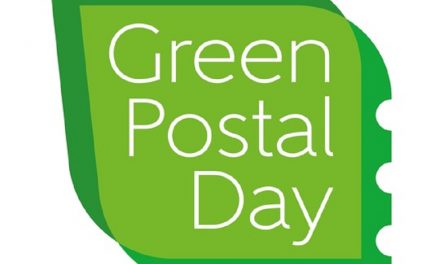
IPC: This crisis is accelerating the structural shift from mail to parcels across the postal industry

With e-commerce already driving postal industry growth in 2019, the shift from mail to parcels has further accelerated due to the COVID-19 crisis, according to the IPC Global Industry Report 2020 Key Findings, published today.
Parcels growth and diversification offset mail volume declines


On aggregate, total postal industry revenue reached €427.2bn in 2019, up €6.3bn on 2018 results. Parcels and express remained the engine of postal growth, up €6.6bn.
Mail revenue grew €0.3bn as structural volume declines were offset by rate increases and growth in lightweight packets. As core mail volumes continue to decline worldwide, posts have looked to diversify their sources of revenue. Mail accounted for just under a third of total industry revenue in 2019.
Covid-19 set to accelerate e-commerce growth

The retail landscape is rapidly evolving. Global e-commerce sales have grown by over 20% per year on average since 2009 and reached €1.8tn in 2019. Before the pandemic, global online sales were predicted to roughly double between 2019 and 2024, but recent trends suggest the COVID-19 crisis will pull this timeline forward.
Posts show resilience during the COVID-19 crisis
Holger Winklbauer, CEO of IPC states: “E-commerce parcels and packets continue to drive postal growth. The COVID-19 pandemic and resulting lockdowns have uplifted e-commerce further and fast tracked other digital trends. This crisis is accelerating the structural shift from mail to parcels across the postal industry.”
With citizens at home and retailers putting up the shutters, e-commerce rocketed during lockdowns. Posts quickly adapted their networks to deliver the unexpected spike in volume which, in many countries, was higher and much more sustained than any previous peak. Posts also reported other key trends during the crisis: B2C deliveries increased across most product segments, from grocery to garden, though trends shifted as lockdowns evolved; local SMEs sent more parcels; deliveries to the home increased; and postal webshops saw online sales rise as footfall in post offices fell.
Winklbauer concludes: “Posts faced many operational challenges due to the pandemic but posts were quick to respond. Despite the disruption, recent IPC research reveals that while in lockdown, close to four fifths of surveyed consumers were satisfied with the delivery speed of their online orders and noticed little or no disruption to postal services.”
Slower average revenue growth in H1 2020
Despite strict lockdowns and many economies entering recession, posts across the globe continued to provide citizens with essential services in the first half of 2020. Mail volume plunged and parcels soared during the first wave of the pandemic, and the financial impact of the crisis varied across posts. On average, and across the smaller subset of posts that publish interim reports, revenue growth fell to 1.3% year on year in H1 2020.














